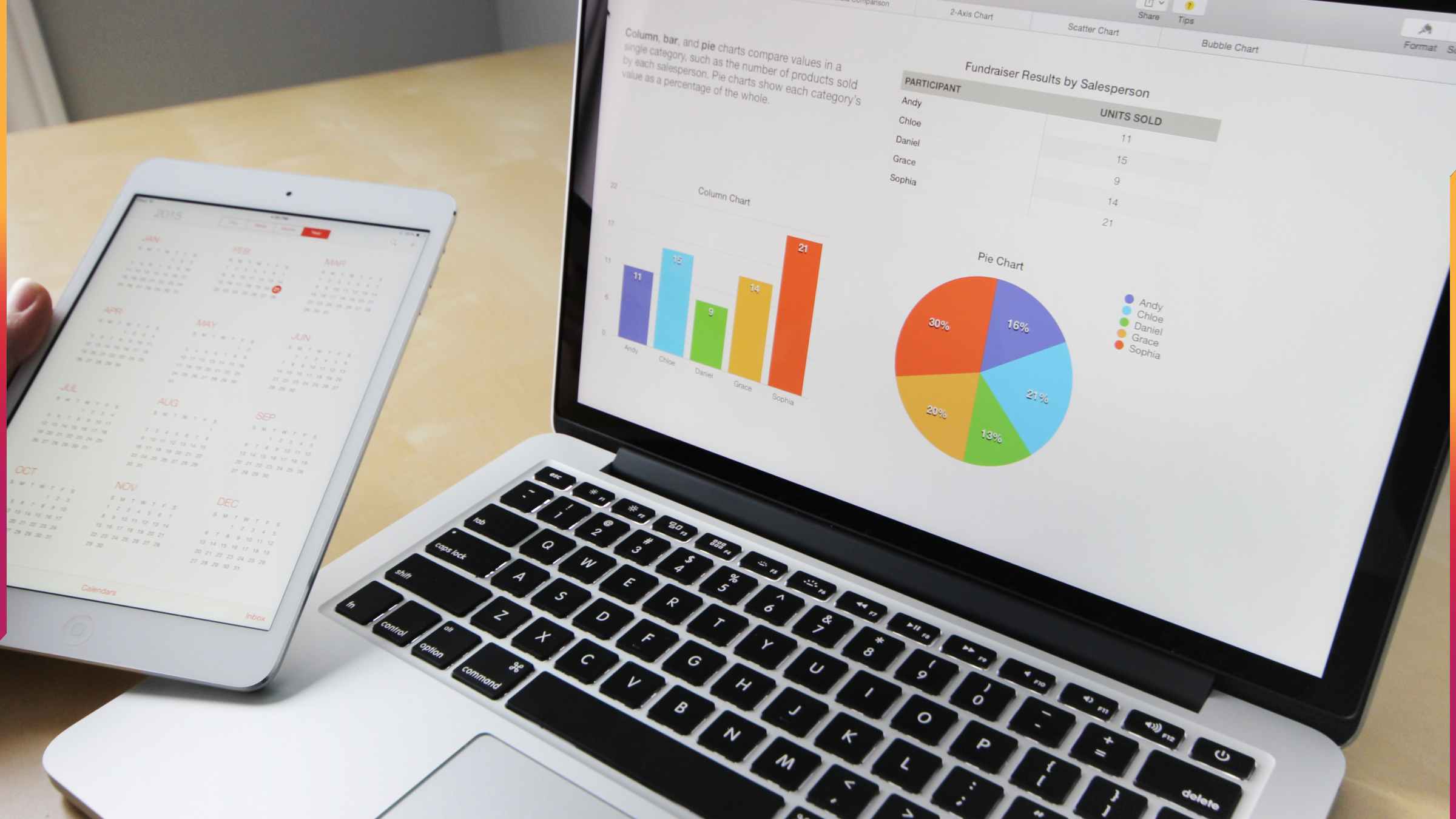How To Make A Financial Plan For a Small Business

If you’re a small business owner, one of the most important things you need to personally know and understand is your finances. But how well do you understand it? That might sound like a strange question to ask since you’d think everyone in business would be clear about their financial plan. But you would be surprised how many solopreneurs, and small businesses, work from invoice to invoice, month to month, without any visibility around their finances.
Without having financial plans to guide your decisions, it's like steering a ship without a map and without the tools you need to guide you to your destination.
That's where a small business coach from The Entourage can step in to help you review your business, investigate your financials, and create a financial plan together. If this is something you need to do to get your 2023 off on the right step, then this article is for you.
Why should you listen to me?
Hi, my name is John Kounas. I have over 15 years' worth of top-level business experience, solving problems and finding solutions in the hospitality industry, and manufacturing, and I have experience as a credit controller.
The hospitality industry, in particular, is one of the best for having financial plans. It can be a great place to build a business and find investors, but then be able to sell your business and show the financial plans to potential buyers.
I’m an Elevate Business Coach with The Entourage. I help small business owners elevate their annual revenue through SMART goals, support, and of course, help them plot out their financial goals through good planning.
I’m going to bring that knowledge to you here today. I want to explain to you why a financial plan, while difficult, is one of the most vital parts of your business plan and business' future.
What is financial planning?
Financial planning is creating a map, a guide for your business into your financial future. It includes your income statements, a balance sheet, cash flow projections, and more.
Financial planning helps you to grow your business through goal setting and metrics. It can forecast marketing and sales spending if you can hire new staff or develop new products and services.
A financial plan is crucial not only because it can give your business a vision, but it can also help your business attract investors by showing them that your business is profitable, and would be a good investment.
Why is a financial plan important for small businesses?
According to Wiseman Accountants, 60% of businesses fail within their first three years. Additionally, of all the new businesses born 4 years ago, 46% are no longer in operation.
A solid financial plan can reduce the chances of your business failing significantly. Here are some reasons why having a financial plan for your small business is vitally important to your long-term success.
As contractors consider expanding their services and maximizing revenue streams, exploring various financial strategies is crucial. Implementing effective financing advice for contractors could be a game-changer, offering clients flexible payment options while ensuring steady cash flow management.
Understand and manage cashflow
You need to know where your money is coming from and why. That's because cashflow is the lifeblood of your business. And the truth is, cashflow likely won't be constant in your business journey.
Sometimes you will have a flood of money. Other times it will be a tiny drop from the tap. Is this because of seasonal issues? Or is it a case of when you stop spending money on marketing, the cash dries up? Understanding what makes your cashflow rise and fall can help you make it flow continuously, or better prepare your business for seasonal changes.
By doing this, it will make your business more robust and profitable, as well as help you turn your chaotic and reactive startup into a business that is more scalable and consistent.
Seeking investment
If you want to raise capital for your business to grow, to elevate to 6, 7 or 8-figures a year, and beyond, you will need a financial plan. Real investors are not going to give you money blindly. They will want to know that you have a plan, and that you have a financially sound business.
Separating income
Most people, when they start a business, fail to pay themselves an income. They work and spend some money from the business as they need.
If you establish what your cashflow is, and create a plan to increase this, then you can separate your income and that of the business. This frees you up to invest back into your business as well as ensure you know where you're spending your money in your business.
Charting the future of your company
I would say it is nearly impossible to plan the future of your business without a financial plan. Growth costs money, and if you don't have a plan on where to acquire that money, how will you grow sustainably?
Financial goals for small businesses
As a small business, you should have goals, and a purpose for being in business. Developing new services to sell, opening up to bigger markets, or even just creating more impact in the world, without a plan, these goals will be pretty much unattainable.
A financial plan, coupled with a business plan, can guide you to these goals often quicker than you’d realise. By creating a financial plan, you're able to:
- Hire more people. You can measure your cashflow over time, and see if there is room in your budget to hire new staff, casual, part-time or full-time. Even better, you can budget it into each new year and plan for growth rather than reacting to growth.
- Develop new products and services. Do you want to optimise your product or service and give yourself time to do research and develop that new service? Is there money to test and launch and market your new service? This requires good planning and forecasting, an essential part of a financial plan.
- Receive mentoring or coaching. After creating a financial plan, are you stuck on what areas you should focus on first? Do you need help with decision making based on a financial plan? Or do you realise that you do have some extra budget in your plan to receive extra coaching, training and resources from experts in the industry who can help you 10x your business?
- Reinvest into the business. Does the financial plan show potential to reinvest into the business, as laid out in the business plan?
How to create a financial plan
There are 3 key elements to creating a financial plan.
1. Cashflow statement
I’ve mentioned a cashflow statement before and how important it is in showing you how much money is coming in, and how much is going out.
To create a cashflow statement, do the following:
- Choose a time period: 3 months or 6 months?
- Start with your current cash balance.
- Estimate what the incoming cash will be.
- Take away the expected expenses for your chosen time period.
You can increase the incoming cash when you get more business, subtract when there are unusual expenses etc. But this will give you the start of a cashflow statement.
2. Income statement
This is known as a profit and loss statement (P&L). In this part of your financial plan, you will include:
- Revenue
- Costs of your goods and services
- Total profit or loss - revenue minus the cost of goods and services
- Operating costs - rent, salaries, utilities
- General expenses - marketing depreciation on equipment
- Operating income - total profit minus expenses
3. Balance sheet
Your cashflow statement looks at where you’re going, and your income statement sees where you’ve been. A balance sheet shows you where you are right now.
They’re quite simple:
- In one column, list all your assets and their worth - e.g., cash, inventory, real estate.
- On the other side, list all your liabilities - loans, accounts payable and so on.
- Subtract your liabilities from your asset, and you’ll have your equity.
Are financial planning fees tax deductible?
Yes, they are. However, they must directly relate to earning income with your business. Financial planning for your own personal future, which includes your business, is not tax deductible.
Where to find financial planning services?
The Entourage can help you with planning the financial success of your business. We provide accounting and advisory services that are available for you today and we also provide financial training and coaching from the business coaches in our team, who can delve deeper into what I’ve shown you here.
Get onboard with The Entourage if you're ready to accelerate your financial and business success today.
Related Posts
Join the movement.
Your Entourage journey starts here. Join Australia's largest community of over 500,000 business owners and entrepreneurs, and receive instant access to exclusive content and updates delivered straight to your inbox.




